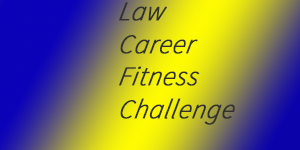Law Career Challenge #16- See with Creative Vision
 Take your career to the next level by unleashing your power of creativity.
Take your career to the next level by unleashing your power of creativity.
That is not always encouraged in a profession that places a high value on precedent, routine and uniformity.
But creativity is a resource that will always be there. It will never run out and works in almost every situation. By using it wisely, you will become a better lawyer.
You might think creativity means painting a picture or writing a sonnet. But it can be expressed in all sorts of ways. It takes creativity to be able to build a bridge, design software or plant a garden. It takes creativity to draft an elegant brief or a persuasive resume. It takes enormous creativity to change the diaper on a screaming one-year-old while dinner is cooking and the phone is ringing.
Life is Creation
Creativity infuses whatever you are doing with vibrancy and energy.
Our formal education system doesn’t always do a good job of teaching this. In law school we are trained to memorize and regurgitate. We are taught to banter socratically.
But too often 1L students are instructed to approach legal problems in a formulaic manner rather than come at them from wild, creative angles. Their creative energy is stifled, not sparked.
Sometimes creativity means looking at a situation a different way. Once at a seminar we were told to stretch out flat on our backs on the floor. Stay like that awhile. Take a look around. From down there, things looked different: the underside of the table, the stained ceiling tiles, the prone people to the right and left.
The takeaway: when you change your perspective, familiar things in new, creative looks.
Write it Down
One way to harness and grow your creativity is through daily journaling. Call it mind mapping, offloading, spitballing, brainstorming. Whatever. A daily practice of writing down your thoughts can work wonders.
Julia Cameron, author of The Artists Way: A Spiritual Path to Higher Creativity, recommends a technique she calls Morning Pages – writing three pages upon rising each day – to promote what she calls “lasting creative awakening.”
Here is how one source describes the idea:
“These three pages of longhand writing, as Cameron says, are strictly a stream-of-consciousness, whatever crosses the mind. She explains that the pages must be done in the morning because they prioritize the day you are about to have instead of reviewing the day that’s already past. Cameron says there is no wrong way of doing the morning pages and nothing written is too petty, silly, stupid, negative, or weird. The purpose of this brain dumping, she explains, is to get all that ‘angry, whiny, petty stuff’ written down so that it miniaturizes our censor, calming us down, cheering us up, inspiring us, consoling us and emptying ourselves of disturbing distractions. Consequently, our minds and hearts open up to deeper reflections.”
Five Training Tips
- Get into nature. When you go for a walk in the woods, you experience creativity in action. The natural world is in a constant cycle of creation, decay, destruction and new creation.
- Play with holograms. Picture the problem or dilemma you face as a three-dimensional hologram. Walk around it slowly. Inspect it from all directions. Don’t make snap judgments or jump to hasty conclusions. Let the solution emerge organically, before your watchful eyes.
- Rearrange the furniture. Our physical surroundings affect how we feel. This is the power of feng shui. Changing your office layout – perhaps moving your desk closer to the window – might be the spark to ignite your creative fire.
- Embrace creative practices. Paint, sculpt, doodle, make a mudpie. Write a poem, strum a ukulele. Once you get the juices flowing, you can make magic.
- Read The Artist’s Way. Since its release 20 years ago, Cameron’s book has helped millions discover and recover their creativity.
Sources:
- Julia Cameron, “The Artist’s Way” http://juliacameronlive.com/
- Virtues for Life http://www.virtuesforlife.com/10-ways-to-spark-creative-thinking/




